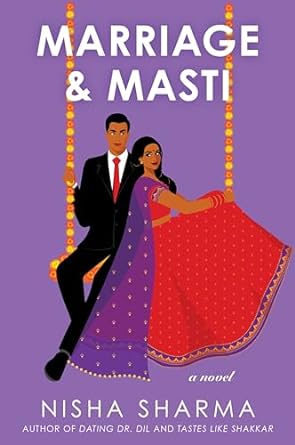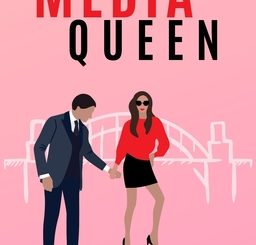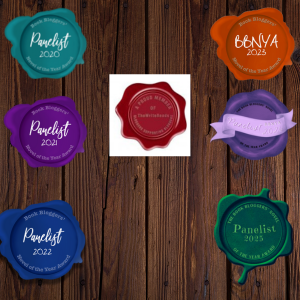Marriage and Masti | By Nisha Sharma
Book Review | Contemporary Romance

My thoughts
Narrative and Plot
Marriage and Masti is the final book in the If Shakespeare Were an Aunty series. By the third book, I had a clear idea of the tone and what to expect. And for the most part, the story delivered.
That being said, some recurring elements in the series, especially in this one, made me question the portrayal of second-generation South Asian immigrant stereotypes. As a work of entertainment, the book was evenly paced and offered a fresh take on the fake dating/marriage trope, particularly within the Indian community.
Characters and Conflicts
Most of the characters are familiar by now. But since this book focuses on Deepak and Veera, I’ll share my thoughts on them. In the previous books, they seemed mature when dealing with other people’s relationships. But when it came to their own love lives, they were surprisingly clueless about what was right in front of them. From a storytelling perspective, this works as a good character arc.
Their fake marriage and the reason it had to continue felt like it was on shaky ground. I mean, couldn’t Veera have just looked for a new job? But then again, we wouldn’t have a book. So, I suspended my disbelief.
There’s also an odd contrast in how they talk about their traditional values and upbringing, yet still casually hook up, and then wonder whether the other person wants something more. As a reader, I couldn’t decide if this is meant to reflect the real life experience of NRIs who struggle to balance their inherited traditions with the culture they were raised in.
As someone born and brought up in India, I found it puzzling. You’re either traditional or independent enough to make your own choices, especially by your thirties. But every character in this series seems to be stuck in the middle.
Another thing I noticed, the entire South Asian community here feels like a Bollywood version of Punjabis. No one in the friend group seems to come from another state or brings a different cultural perspective. I get that this is a rom-com and not meant to be taken too seriously, but it did make me wonder. These “brown” characters didn’t feel relatable to me, a simple Indian woman.
And why doesn’t the one queer couple in the group get their own book? I would have loved to read their story.
Coming back to Veera, as the protagonist she was largely passive until the very end. Even her grand gesture in the third act was carried out by others. Personally, I prefer protagonists who do their own heavy lifting. Veera didn’t act until she was cornered.
Despite all this, there are several elements I genuinely enjoyed. The chaotic fake Indian wedding, the alienation of single women, and the way friendships drift apart with age. All of it was beautifully explored. The fact that this review turned out so long just shows how invested I was in this series.
Conclusion
Overall, Marriage and Masti is a fun and easy read. I’m not sure I’d re-read it, but I would definitely recommend it to anyone looking for a light-hearted rom-com with a fake Indian marriage trope.

Some of the links on this blog are affiliate links. That means if you click through and make a purchase, I may earn a small commission at no extra cost to you! Think of it as a little thank you hug for all the bookish content I pour my heart into.
Your support keeps the pages turning.
Happy reading and thank you for being here!











